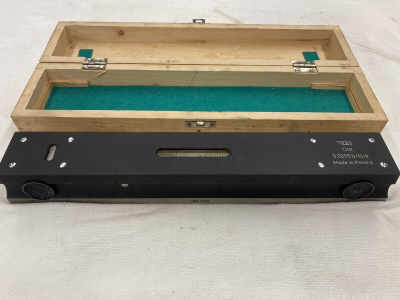Getting twist out (leveling) your lathe is one thing you can do to chase precision. It’s far
from the only thing though.
Not sure anyone has mentioned it yet but this matters more the longer the parts you make are. If you’re turning a precision axle that will be ruined if it’s off by .001” over 2 ft. then it’s going to matter. If your part is 3” long and can be within .005” then not so much.
I haven’t leveled my lathe even though I purchased one of those fancy precision levels a while back. It makes parts as good as I could expect with my skills.
For your chicken feeder project I think you’ll be just fine without the fanc
Getting twist out (leveling) your lathe is one thing you can do to chase precision. It’s far
from the only thing though.
Not sure anyone has mentioned it yet but this matters more the longer the parts you make are. If you’re turning a precision axle that will be ruined if it’s off by .001” over 2 ft. then it’s going to matter. If your part is 3” long and can be within .005” then not so much.
I haven’t leveled my lathe even though I purchased one of those fancy precision levels a while back. It makes parts as good as I could expect with my skills.
For your chicken feeder project I think you’ll be just fine without the fancy level.
John



